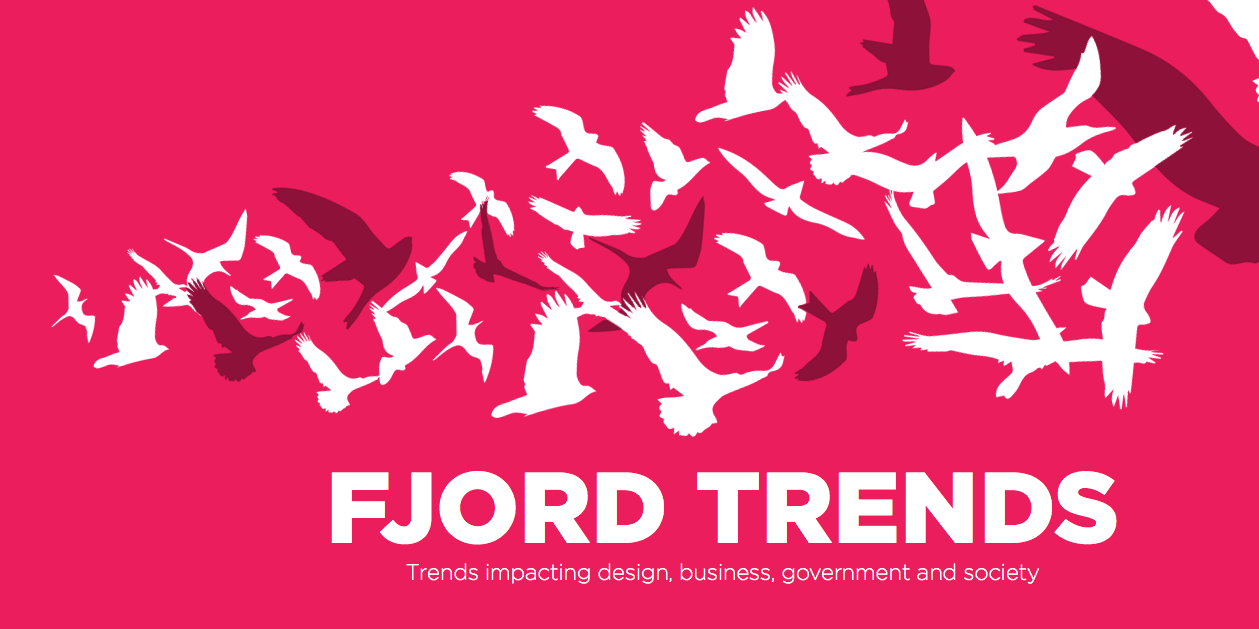In 2016, big data will get some manners, VR will go mainstream and highly tailored experiences will be available for the masses.
Those are just some of the predictions on Fjord’s Trends 2016 report, which looks at the key digital trends expected to transform organizations and society in the year ahead. Fjord, a design and innovation consultancy that’s part of Accenture Interactive, developed the ninth annual report with input from 750 designers and developers in 19 studios globally, including a new studio in Toronto.
Scott Weisbrod Fjord’s group service design director and studio head in Toronto, said underpinning the trends is what Fjord called “living services,” dynamically responding to user needs and context in real time.
“It’s our articulation of how the Internet of Things is going to impact every facet of our lives, from health to finances to our homes, and the way we travel and interact with people,” said Weisbrod.
Here’s a look at some of the top trends and disruptors for 2016:
WATCH. IT LISTENS.
Listening devices are everywhere: consumers have devices strapped to their wrists that encourage them to run farther or eat better. Devices in people’s homes now listen and respond, and apps can track people’s driving behaviour.
“What’s really impressive about the explosion of wearables [and nearables] is they’re basically data collection machines,” said Weisbrod. “A lot of brands are trying to extract insight from that in terms of how consumers buy and make decisions about the products and services they need in their lives.”
There are a lot of possibilities on this front, from personalized pricing to products and services based on a person’s health activities.
“You can imagine how a FitBit or another wearable could partner with an insurer or group health benefits company to start to drive healthier outcomes for the employees of an organization or people who buy life insurance by tracking their data and the things they do in their lives,” said Weisbrod.
SERVICE WITH MANNERS – BIG DATA ETIQUETTE
All that data, however, brings up the issue of privacy. Companies now have “unprecedented views” into people’s lives and with this comes extraordinary responsibility, according to the report. Leveraging data in an ethical manner is more important than ever, and digital trust must be earned.
“If you want to truly deliver on being a trustworthy brand, you almost need to imagine what it would be like to have a conversation with a customer in person,” said Weisbrod. “How would you actually ask for access to a customer’s health information? It’s easy to just make a checkbox on a screen… but a lot of customers will be skeptical. [They’ll wonder] what you are going to use it for and what is the mutual benefit?”
Consumers must clearly see the benefit of sharing their personal data with companies in the form of discounts, valuable content, added convenience or personalized services. Fjord also suggested companies embed privacy standards into technology and the product design process from the start, a concept it called “privacy by design.”
THE FLATTENING OF PRIVILEGE
In the past, highly tailored experiences were reserved for the wealthy. But, technology is bringing luxury services like personal chauffeurs (Lyft) and virtual assistants (Facebook M) to the masses. “It democratizes luxury… and we see it happening in every vertical, from banking to healthcare,” said Weisbrod.
Toronto-based Wealthsimple, for example, is an online automated portfolio and financial advisory service. “They’re part of a class of digital investment advisors… [that] give people access to a high-end service that was only available in the past to people who could afford it,” said Weisbrod.
For those in the luxury business, Fjord suggested examining your role from the consumer perspective and figuring out how you can disrupt your service model now that delivering luxury can be done by anyone.
For mainstream service providers like banks, “it means they need to think about how digital is transforming their business, and what kinds of decisions do they need to make about their next generation of advisory services,” said Weisbrod.
VR’S DREAMS COME TRUE
Fjord said virtual reality would make its mainstream debut in 2016 with the first consumer versions of Sony, Oculus, and Samsung products hitting the market. And it’s not just for gaming. Designers will put VR technology to novel use in everything from scientific studies to virtual tourism, to immersive learning.
For example, Google has developed virtual reality field trips for school.
And, Google Cardboard is a simple and affordable system for mounting a smartphone inside a cardboard headset that creates a personal VR experience. For businesses, VR will influence how people meet and collaborate.
But Weisbrod cautioned, “don’t go crazy with it… Start to test and learn and figure out what kinds of experiences are going to unlock value and mutual benefits for you and the customer.”
The full Trends 2016 can be viewed here.











